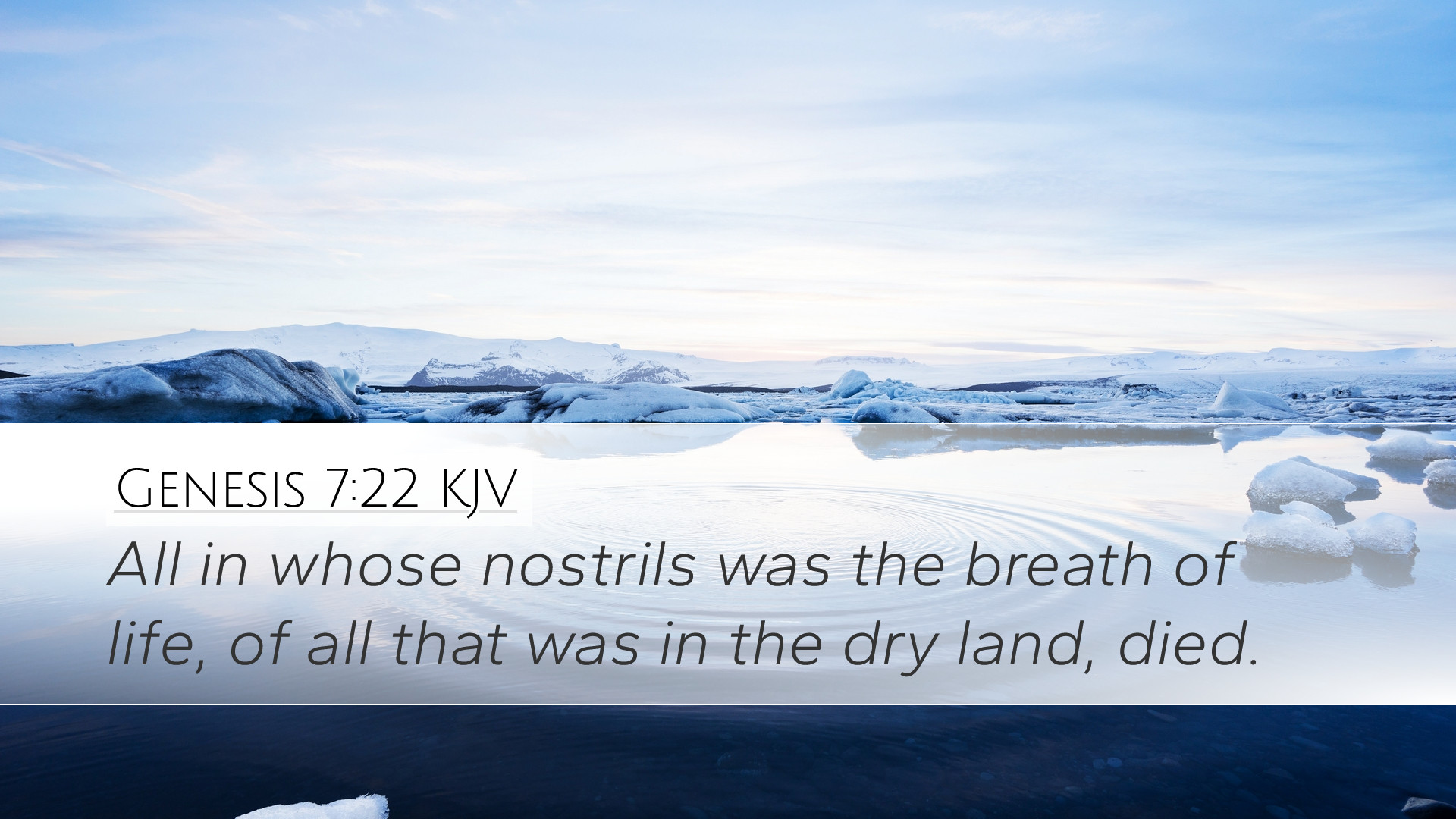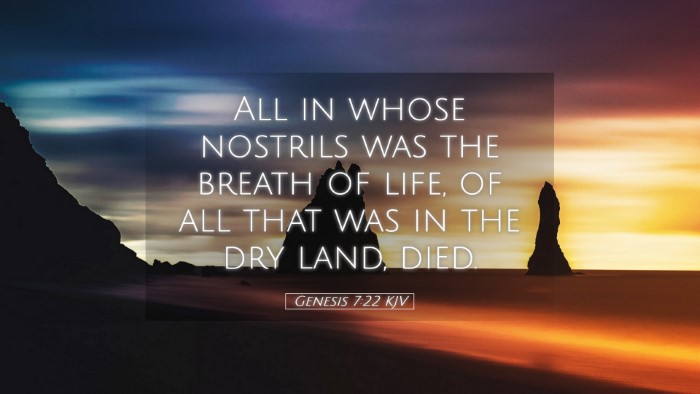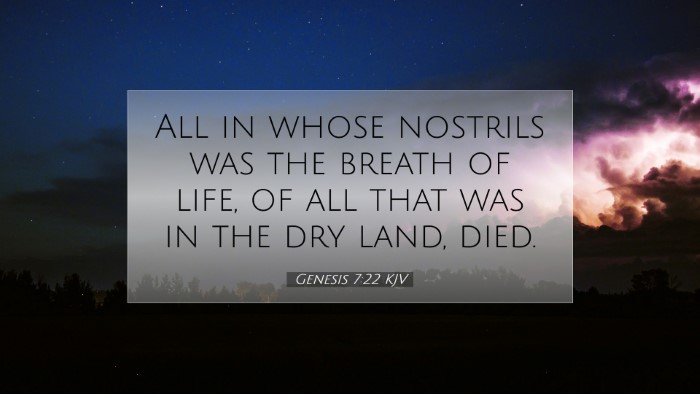Commentary on Genesis 7:22
Verse Reference: Genesis 7:22 - "All in whose nostrils was the breath of the spirit of life, of all that was on the dry land, died."
This verse occurs within the context of the flood narrative, illustrating a definitive and catastrophic judgment from God on the earth. The severity of this verse cannot be understated, as it signifies the complete eradication of the living beings that resided on dry land apart from Noah and those aboard the Ark.
Insights from Public Domain Commentaries
Matthew Henry
Henry emphasizes the all-encompassing nature of God's judgment during the Flood. He notes that life on the earth was fundamentally altered, as every creature of flesh that had the breath of life perished, which reflects both the justice and the sovereignty of God. This verse serves to reiterate the totality of destruction that followed human disobedience and corruption.
- Divine Judgement: The flood represents a severe punishment for the rampant wickedness of humanity. There is a distinct correlation between human sin and the divine response.
- Inclusivity of Judgment: The phrase "all in whose nostrils was the breath of the spirit of life" underscores the breadth of God's judgment, extending beyond humans to all living creatures. This suggests that the consequences of sin affect not only the sinner but all of creation.
Albert Barnes
Barnes offers a theological reflection on the significance of the "breath of the spirit of life." He highlights how this phrase denotes that all creatures, including humans and animals, were imparted life by God. Thus, when they perished, it served as a stark reminder of the transient nature of life and the ultimate authority of God as the giver and taker of life.
- Nature of Life: The verse reflects a profound truth about existence—life is a gift from God. Consequently, the removal of that gift demonstrates the seriousness of divine discipline.
- Consequences of Sin: A clear link is established between collective sin and the resultant divine judgment. The extinction of life indicates the severity with which God responds to pervasive iniquity.
Adam Clarke
Clarke provides detailed observations on the language used in this verse. He notes that the specific mention of "nostrils" symbolizes the intimate manner in which God gives life. The loss of life, therefore, signifies not merely a physical destruction but a separation from God, who is the source of life. Clarke also stresses that this passage shows that God’s judgments are thorough and absolute.
- Symbolism of Breath: Clarke interprets "breath" as not only the physical air but also a metaphor for the life force, which God imparts. Thus, the removal of this breath signifies ultimate desolation.
- Universal Judgment: The totality of deaths serves to remind believers of the seriousness of sin and the inevitability of divine judgment when humanity turns from God.
Theological Implications
The implications of Genesis 7:22 extend far beyond its immediate historical context. It presents a narrative of redemption and divine grace in stark contrast to judgment. While the flood denotes destruction, the survival of Noah and his family signals hope—a remnant through which God’s purposes would continue.
Application for Pastors and Theologians
This verse offers a critical reflection point for sermons on sin, judgment, and grace. Pastors may draw parallels between the flood and present-day circumstances, urging congregations to recognize the serious implications of sin in their lives. The pervasiveness of iniquity in modern society could serve as a call to repentance, drawing strength from the reminder of Noah being spared as an example of God's mercy.
Lessons on Human Fragility
The verse also serves as a humbling reminder of human fragility. Life is transient, and the ultimate authority lies with God. For students of theology, this passage raises profound questions about the nature of divine justice and mercy. The balance between God’s judgment and His grace is a central theme in understanding the character of God as revealed throughout Scripture.
Conclusion
Genesis 7:22 is a sobering reminder of both the reality of divine judgment and the hope found in obedience to God. It encapsulates the severe consequences of sin while simultaneously heralding the possibility of redemption through faithful adherence to God’s commands. As such, this verse remains invaluable for ongoing theological reflection, biblical exegesis, and pastoral application.


